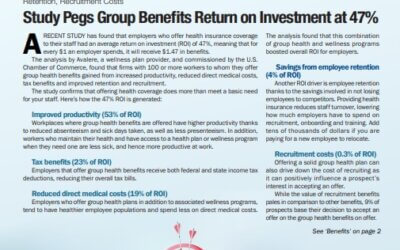Some of the nation’s largest insurers have announced plans to roll back their prior authorization requirements for medical services, and some are doing this in their Medicare Advantage plans as well.
The moves come as states and the Centers for Medicare and Medicaid Services are implementing rules that aim to streamline prior authorizations for Medicare Advantage plans.
Prior authorization — or prior approval — has always been a thorn in the side of patients, often keeping them from accessing care in a timely fashion. The moves by these insurers come after the CMS announced earlier this year that it would require health insurers to automate prior authorization and return decisions more quickly.
These developments are good news for Medicare Advantage enrollees and should improve their health care experience and access to timely care. Many of these changes took effect immediately and some will start in 2024.
While original Medicare, including Part A, rarely requires prior authorization, Medicare Advantage plans, which are often preferred provider organizations and health maintenance organizations, may require it for certain procedures.
Under prior authorization, doctors and other health care providers must obtain advance approval from a health plan to qualify for coverage before they deliver a specific service to the patient. Health insurers have lists of services that require prior approval, in order to control their costs.
Nearly all Medicare Advantage enrollees (99%) are in plans requiring prior authorization. Often, the prior authorization is for more expensive services, such as an MRI or being transferred from a hospital to a skilled nursing facility.
In 2021, 6% — or 2 million Medicare Advantage prior authorization determinations — were denied, according to a report issued by the Kaiser Family Foundation in February 2023.
What insurers are doing
Here are what a few of the nation’s largest health insurance players are doing:
- Cigna — In August 2023, Cigna announced with immediate effect that it would no longer require prior approvals for nearly 25% of medical services, and it plans to cut another 500 or so codes that require prior authorization for its Medicare Advantage plans before the end of this year.
- UnitedHealthcare— UnitedHealthcare, starting in Spring 2023 and lasting through the end of the year, aims to eliminate almost 20% of its current prior authorizations. It also plans to eliminate a code for cardiology stress test prior authorization for Medicare Advantage members, eliminating the need for some 316,000 prior authorization requests a year.
- Aetna — In 2022, The insurer rolled back prior authorization requirements on cataract surgeries, video EEGs and home infusion for some drugs. Aetna said that it had also reduced automated prior authorizations by more than 10% in 2022, with plans to more than double that this year, according to press reports.
States, regulators taking action
Three states — Louisiana, Michigan and Texas — already have “gold card” laws on their books that except from prior authorization rules certain doctors whose requests are routinely approved. This year, another 24 states have introduced similar legislation, according to a report by the Wall Street Journal.
Meanwhile, in April 2023, the Biden administration implemented a final rule designed to ensure people with Medicare Advantage plans get access to the same necessary care — prescriptions, medical tests, equipment and procedures — as they would receive in traditional Medicare.
The new rules, which require that plans automate their prior approval procedures, are slated to take effect in 2024. The final rule also requires that approval of a prior authorization request for a course of treatment must be valid for as long as medically reasonable and necessary to avoid disruptions in care.
The new rules would also prevent patients from having their medical care discontinued just because they’ve switched Medicare Advantage plans or moved from traditional Medicare to Medicare Advantage.

